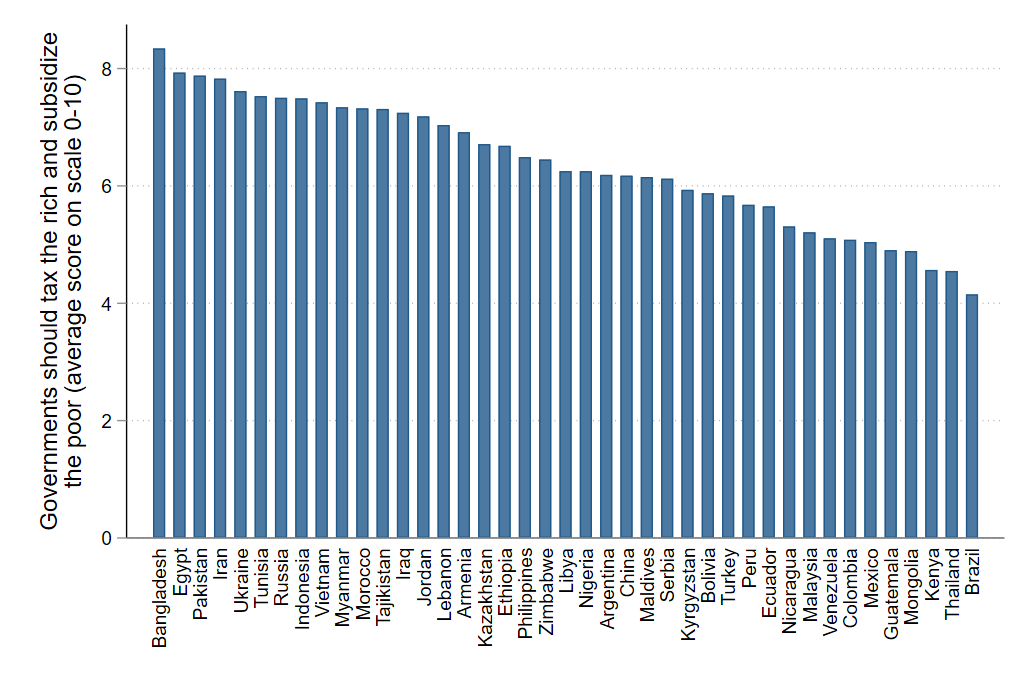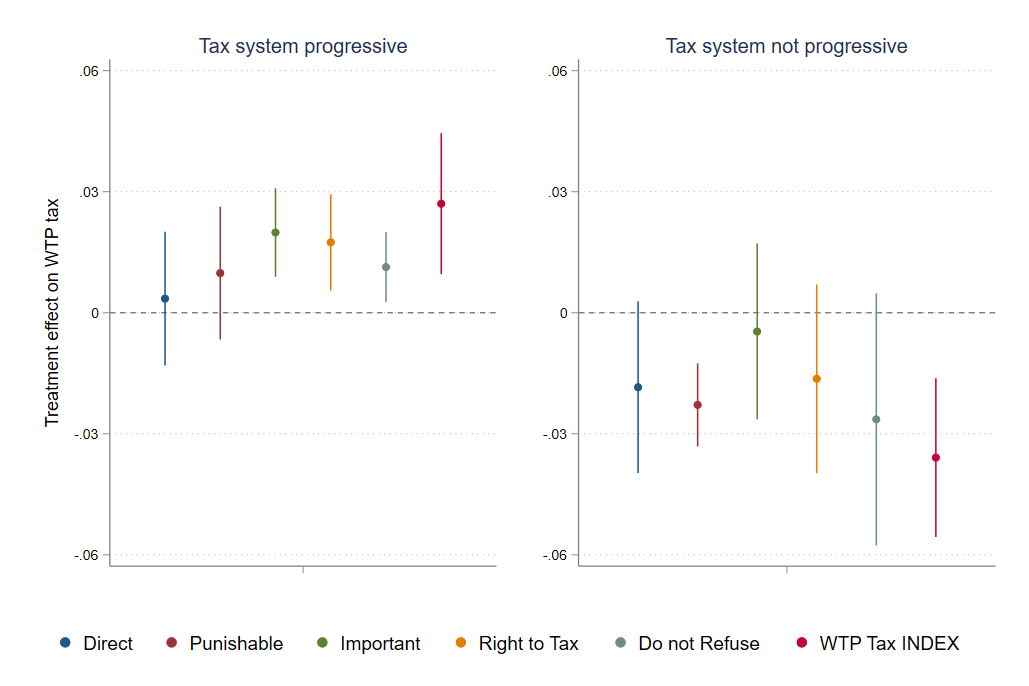 Shrinking fiscal space and inflation
Shrinking fiscal space and inflation
Tax reforms that reduce progressivity, which are intended to improve the fiscal position of a country, could undermine tax compliance to a point where the net impact on revenue is negative.
Countries around the world are struggling with shrinking fiscal space; debt levels are close to record highs, interest payments are increasing rapidly due to high inflation, and the global economic outlook is very uncertain. As governments consider the role of taxation to respond to this environment, we outline in this blog three reasons why maintaining or increasing the progressivity of the tax system is important. These reasons are drawn from insights gained from the most recent round of the World Values Survey, the latest World Bank Poverty and Shared Prosperity Report and a new World Bank working paper.
1. Most people prefer progressive taxes
Progressive tax and transfer systems are broadly supported by the general population. This is illustrated in the most recent World Values Survey, which covers a representative sample of populations in over 40 low and middle-income countries. Respondents were asked, on a scale of 0-10, how supportive they were of governments taxing the rich and subsidizing the poor, which is a simple way of characterizing a progressive tax and transfer system. The figure below shows that, across a diverse range of countries, most were supportive of progressivity, with average scores ranging from 5 to 8. Furthermore, in many countries, richer respondents were more likely to agree than disagree that the tax and transfer system should be progressive. These insights would suggest that policy makers should feel confident that they have popular support for tax reforms that increase progressivity.

2. Progressive taxes help reduce inequality
Progressive taxes, particularly direct income taxes, are a key channel for governments to reduce inequality in the short run. This has been highlighted by the latest World Bank Poverty and Shared Prosperity Report, which includes a detailed discussion on how taxes, transfers, and subsidies impact inequality across countries. Only a few governments in low and middle-income countries currently utilize progressive taxation (and transfers) to dramatically reduce income inequality. This is illustrated in the figure below, which shows the difference between levels of income inequality before (gross GINI index) and after (net GINI index) taxes, transfers, and subsidies across the 55 low and middle income countries for which comparable data is available (this information is provided by the Commitment to Equality (CEQ) Institute). These cross-country differences are partly due to the extent that governments rely on indirect taxes that all households pay (for example, value-added tax) compared to direct taxes that is primarily targeted towards richer households (for example, personal income tax). A re-orientation towards direct income taxes and away from indirect taxes will greatly assist governments in creating a more equitable society.

3. People are more willing to pay tax when taxes are progressive
A new World Bank working paper based on a broadly representative survey of populations with internet access in a diverse set of countries (Colombia, Ghana, Indonesia, Jordan, Mexico, Sri Lanka, South Africa, and Tanzania) speaks directly of the consequences of reforms that alter the progressivity of taxes. The main message from the study is that people are more willing to pay taxes when taxes are progressive and far less willing when taxes are not progressive. This was examined rigorously through a randomized survey experiment in which some respondents (the treatment group) received accurate information about the progressivity of the tax system in their countries; their answers were compared to that from respondents who did not receive any information (the control group). The figure below shows the impact of the information on a series of standard questions measuring people’s willingness to pay tax as well as an “index” that summaries the treatment effects across all questions.
The results are pooled across the countries based on whether or not the tax systems were progressive. These findings suggest tax reforms that improve progressivity could have additional benefits by increasing people’s willingness to pay tax. However, the opposite could also be the case— tax reforms that reduce progressivity could decrease people’s willingness to pay tax. In the most extreme case, it is possible that tax reforms that reduce progressivity, which were intended to improve the fiscal position of a country, could undermine tax compliance to a point whereby the net impact on revenue is negative.

Note: Direct: Respondents would still pay tax even if there was no enforcement (Q14 in the study). Punishable: Respondents stated that people not paying tax is wrong and punishable (Q15 in the study). Important: Respondents agreed it is important for people to pay tax (Q16 in the study). Right to Tax: Respondents agreed the government always has a right to make people pay tax (Q17 in the study). Do not Refuse: Respondents believe people should not refuse to pay taxes until they receive more government transfers (Q18 in the study). WTP INDEX: An unweighted average of the Z-scores of all five outcome variables, oriented so that a higher index means more willingness to pay tax.
We have shown that, across countries, progressive taxes are quite popular. They help reduce inequality and are positively associated with improved tax compliance. Collectively, these reasons provide justification for why policymakers should maintain or even increase progressivity of the tax systems as they navigate the challenging economic circumstances ahead.



Join the Conversation